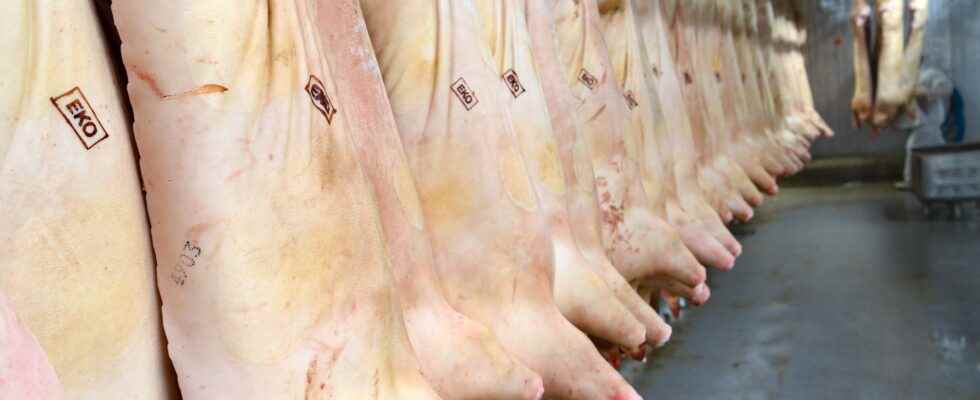full screen
Next
The government is appointing an inquiry into camera surveillance at slaughterhouses. Stock Photography.
1 of 2Photo: Johan Nilsson / TT
The government will investigate the possibility of introducing requirements for camera surveillance at slaughterhouses in order to strengthen animal welfare.
– We have a public control already now. But with that said, shortcomings are still discovered in the protection of the animals that are handled in slaughterhouses, says Minister of Rural Affairs Anna-Caren Sätherberg to TT.
Introducing requirements for camera surveillance of places where live animals are handled in connection with slaughter could be a good complement to improve the authorities’ control, according to the Minister of Rural Affairs.
On Wednesday, the government has therefore appointed a special investigator to analyze how such a requirement can be formulated.
– Swedish food is not only good, it is also characterized by very good animal welfare. It is a competitive advantage. Animal welfare is an important issue for consumers, therefore it is important that there is confidence in Swedish animal welfare in the entire chain, from the farm to the slaughterhouse, says Sätherberg.
Can streamline controls
The companies that run the slaughterhouses are obliged to ensure that the regulations on animal welfare are complied with. Public inspections are already being carried out at the slaughterhouses by, among others, veterinarians to see that the rules are complied with.
– It can take very many hours. This can be a way to make it more efficient.
Camera surveillance has already been used in connection with the pandemic, as veterinarians have not had the opportunity for physical visits, says Sätherberg.
– Cameras can be a good complement to the inspection that is done on site. That public control simply becomes more efficient and that costs can be reduced, which would be an advantage for both slaughterhouses and the relevant authorities.
TT: Can camera surveillance replace other forms of controls?
– That is what you have to analyze. The assessment now is that it will be a complement, but that means that you do not have to be in place for as long and as much if you have cameras, says Sätherberg.
Who will monitor?
But in order for camera surveillance to be introduced, a number of issues need to be investigated first.
– Who will be responsible for the camera surveillance, who will have access to the recorded material and how it will be saved. It is also about personal integrity, you have to do an integrity analysis. And it’s about secrecy, of course.
Peder Liljeqvist, lawyer for the Court of Appeal at the Court of Appeal in Stockholm, has been appointed special investigator.
– He has good knowledge and extensive experience in issues related to data protection and confidentiality, says Sätherberg.
The investigation must be reported no later than 31 May 2023.
